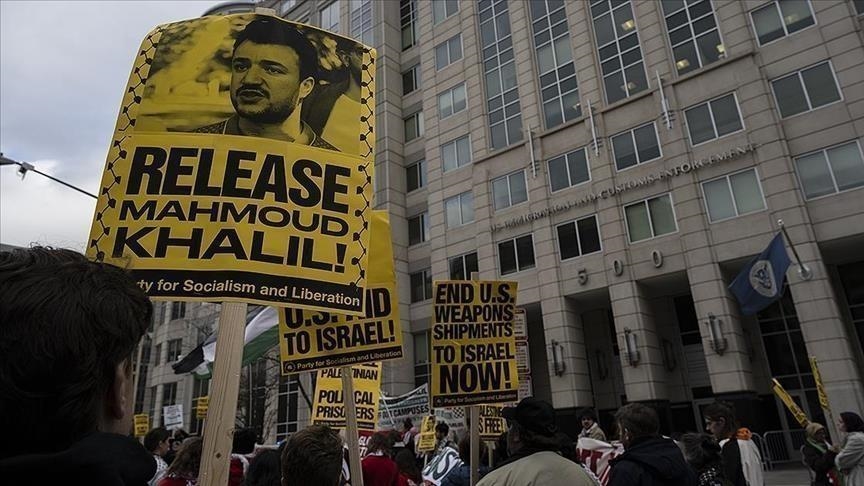Judge rules detainment of Columbia student Mahmoud Khalil likely unconstitutional
Trump administration used 'weaponization of immigration law to punish Mahmoud,' say attorneys

HOUSTON, United States
A federal judge in the US state of New Jersey ruled Wednesday that the Trump administration's detainment of Columbia University student Mahmoud Khalil was likely unconstitutional, according to media reports.
Judge Michael Farbiarz issued his opinion, noting that the foreign policy charges in Khalil's apprehension by the US Department of Homeland Security (DHS) were "unprecedented" and likely unconstitutional, stating that "the issue now before the Court has been this: does the Constitution allow the Secretary of State to use Section 1227, as applied through the determination, to try to remove the Petitioner from the United States? The Court’s answer: likely not."
Farbiarz noted that Khalil was likely to succeed in fighting his case based on his unconstitutional vagueness argument. The judge also requested additional information from both sides in order to rule further on Khalil's outstanding demand for his release from a Louisiana detention center while court proceedings continue.
Khalil’s attorneys responded to the judge's ruling, vowing to seek justice for their client.
"The district court held what we already knew: Secretary (Marco) Rubio's weaponization of immigration law to punish Mahmoud and others like him is likely unconstitutional," they said in a statement.
"We will work as quickly as possible to provide the court the additional information it requested supporting our effort to free Mahmoud or otherwise return him to his wife and newborn son," his lawyers continued. "Every day Mahmoud spends languishing in an ICE (Immigration and Customs Enforcement) detention facility in Jena, Louisiana is an affront to justice, and we won't stop working until he is free."
Khalil was arrested by DHS officials near his New York City residence on March 8 in direct retaliation for his pro-Palestinian activism on the campus of Columbia University. He was then transferred 1,400 miles (2,253 kilometers) to a Louisiana detention facility without due process, separating him from his pregnant wife and his legal counsel. Khalil has been held there since then, missing the birth of his child during that period.
Khalil's case is one of several high-profile incidents in which the Trump administration has arrested and detained international students for their pro-Palestinian activism, stripping them of their student visas, locking them up at detention facilities and processing them for deportation without giving them due process to court hearings and legal representation.
The judge noted that Khalil's case could set a precedent for those future cases.
"If Section 1227 can apply, here, to the Petitioner, then other, similar statutes can also one day be made to apply. Not just in the removal context, as to foreign nationals. But also in the criminal context, as to everyone," said Farbiarz.








